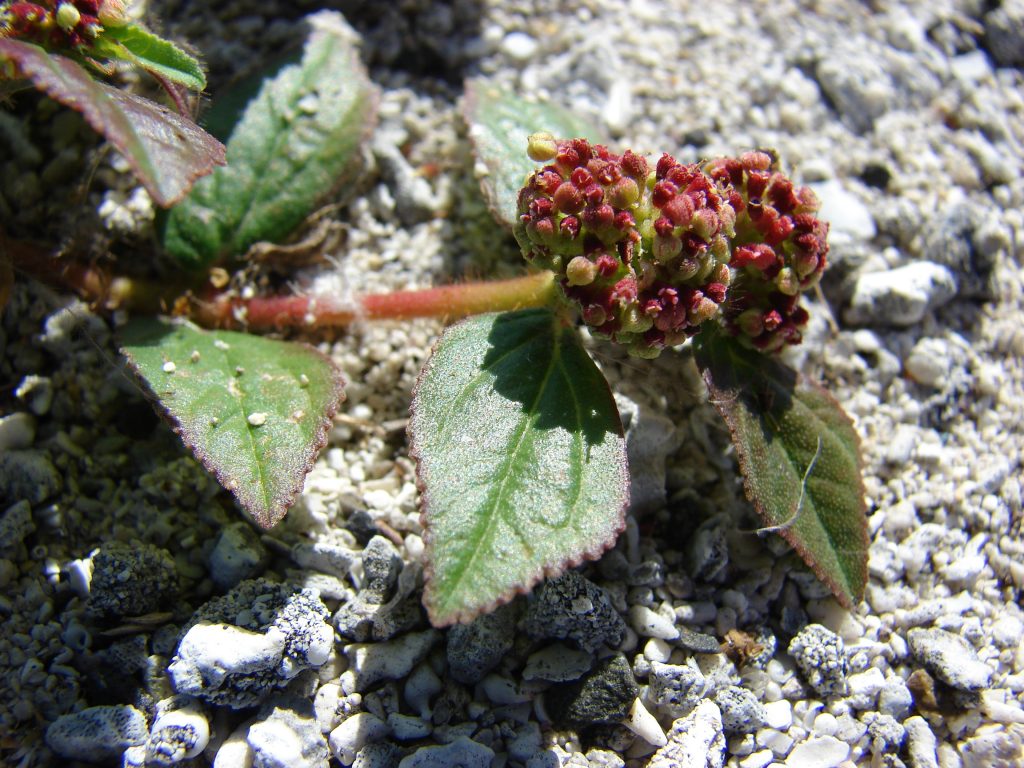 Euphorbia hirta is a plant belonging to the Euphorbiaceae family of pants. Extracts of the plant is used in traditional medicine, often for gastrointestinal complaints. The plant grows as a small shrub and is often considered a weed. Investigations into the pharmacological activity of extracts of the plant show that components within the plant are bioactive, and may have particular effects at altering brain chemistry. This may explain the anxiolytic and sedative effects of the plant. Evidence suggests that extracts of Euphorbia hirta may affects a number of neurotransmitter systems in the brain. For example, in chronically stressed rats, acetylcholine levels fall in frontal cortex, hippocampus and septum of the brain. However Euphorbia hirta can attenuate the reductions acetylcholine seen in these regions. Euphorbia hirta may therefore be able to prevent changes in brain chemistry seen during chronic stress and this may explain the anxiolytic and antidepressant effects of the plant.
Euphorbia hirta is a plant belonging to the Euphorbiaceae family of pants. Extracts of the plant is used in traditional medicine, often for gastrointestinal complaints. The plant grows as a small shrub and is often considered a weed. Investigations into the pharmacological activity of extracts of the plant show that components within the plant are bioactive, and may have particular effects at altering brain chemistry. This may explain the anxiolytic and sedative effects of the plant. Evidence suggests that extracts of Euphorbia hirta may affects a number of neurotransmitter systems in the brain. For example, in chronically stressed rats, acetylcholine levels fall in frontal cortex, hippocampus and septum of the brain. However Euphorbia hirta can attenuate the reductions acetylcholine seen in these regions. Euphorbia hirta may therefore be able to prevent changes in brain chemistry seen during chronic stress and this may explain the anxiolytic and antidepressant effects of the plant.

Euphorbia hirta contains a number of identified phytochemical groups including flavonoids, sterols, terpenoids and phenols. The flavonoids present in the herbi include quercetin, myricetin and kaempferol, which all belong to the flavonol group of flavonoids. These are present as various glucosides. Euphorbia hirta also contains other flavonoids, such as anthocyanins including pelegonium and cyanidin. Other constituents include ellagic acid, camphol, hentriacontane, myricyl alcohol, inositol, taraxerol, friedelin, β-sitosterol. Many of these compounds have antioxidant activity, which may provide the anti-inflammatory activity ween with extracts of the herb. As inflammation is able to alter brain chemistry, the antioxidants may be responsible, at least in part, for the beneficial effects seen in the plant. Image is of Euphorbia hirta. Image from: Forest & Kim Starr, CC BY 3.0, https:// commons.wikimedia.org/ w/ index.php?curid=6160393.
RdB
Eat Well, Stay Healthy, Protect Yourself
